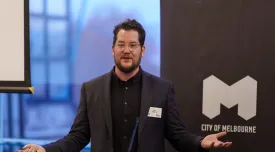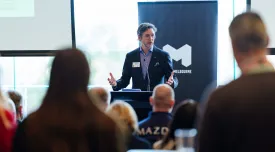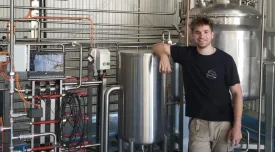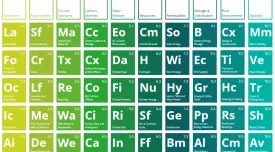Breadcrumb
- Home
- Industry Insights
- Transforming emissions into fertiliser, Kapture partners with Deakin
Transforming emissions into fertiliser, Kapture partners with Deakin
Melbourne-based deep tech climate tech startup, Kapture, partners with Deakin University to revolutionise carbon capture technology.
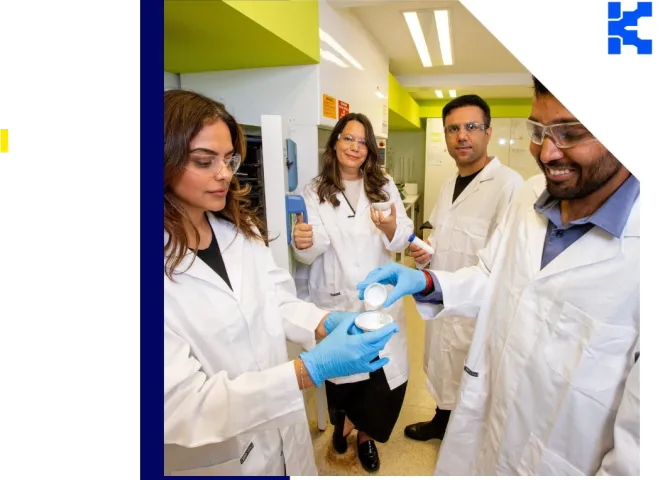
What happens when you have a connected and thriving climate tech ecosystem? You come together to solve the world's toughest problems!
That's what's happening with Melbourne-based female founded startup Kapture, which captures carbon emissions from deisel generators and supports agriculture with a new cleaner fertiliser. And as founder Raj Bagri says "We're just getting started".
In a move to decarbonise heavy industry and support sustainable agriculture, Melbourne-based start-up Kapture has partnered with Deakin University through its Recycling and Clean Energy Commercialisation Hub (REACH) to transform combustion engine emissions into sustainable fertiliser.
Kapture technology is focused on tackling diesel pollution at its source, targeting generator sets or gensets, the portable power units driving off-grid and remote industries like construction, mining and agriculture.
Kapture’s carbon capture device captures and converts carbon dioxide (CO2) from combustion engines.
With REACH, Kapture and researchers from Deakin’s Faculty of Science, Engineering and Built Environment (SEBE) will explore how the sequestered CO2 can be converted into a nutrient-rich fertiliser product that can be used as a green fertiliser.
‘The idea came from creating a carbon capture device that can convert carbon emissions into valuable byproducts,’ said Raj Bagri, Kapture’s Founder and CEO.
‘By converting CO2 into a green fertiliser, we’re not just reducing CO2 emissions, we’re supporting a circular economy by cutting emissions, creating green fertiliser to be used in Australian agriculture, and creating new opportunities for regional communities.’
The company aims to offer a practical and scalable solution for hard-to-abate industries, which contribute significantly to unregulated air pollution in Australia.
‘Our device is designed to be retrofitted to existing infrastructure like diesel generators and captures the CO2 emissions before they are emitted into the atmosphere. The byproduct is an inert powder that has the potential to be used as a green fertiliser,’ said Ms Bagri.
Deakin researchers, including SEBE’s senior lecturers Dr Svetlana Stevanovic and Dr Ali Zare, are working closely with Kapture to assess the environmental safety of the material and quantify the value of the byproduct.
Putting Kapture's sustainable fertiliser byproduct to the test
‘In our labs, we’re analysing the captured byproduct to characterise its composition, ensuring it’s free from diesel residues and suitable for soil application,’ says Dr Svetlana Stevanovic. ‘This is key to gaining regulatory approval and delivering real environmental benefits.’

Greenhouse and field trials, scheduled for late 2026, will test the fertiliser’s performance on common Australian cereal and legume crops. Deakin's Deputy Dean SEBE Professor Lambert Brau will conduct experimental studies leading to comparisons of this novel product to existing commercial fertilisers across varied soil types and climate conditions.
‘If the product performs well and is cost-competitive, it could significantly support industrial decarbonisation and promote cleaner, local fertiliser production,’ said Professor Brau. ‘This would represent a major shift in sustainable farming practices.’
While some Australian farmers make their own biofertiliser, demand is growing for more sustainable alternatives. Unlike synthetic fertilisers, which are carbon-intensive to produce and transport, Kapture’s technology could capture emissions from diesel-powered farm equipment to create CO2-based fertiliser onsite. With diesel making up over 80 per cent of Australia’s agricultural energy use, this approach can improve soil health, boost yields, cut emissions and reduce supply chain reliance.
‘Despite the growth in electrification, combustion engines remain essential for off-grid and remote operations,’ said Dr Stevanovic. ‘This innovation offers a pathway to decarbonise those activities, contributing to net-zero goals while delivering real value to communities.’
Looking beyond agriculture, Kapture is exploring applications for its byproduct in sectors such as concrete, plastics, glass and paper manufacturing. The company recently completed its first customer pilot with Horizon Power in Western Australia and is now expanding its technical team with a commercial rollout targeted for 2026.
‘This technology is good for the planet, for farmers and for the economy,’ said Ms Bagri. ‘And we’re just getting started.’
‘Together, we’re proving what’s possible when research and industry unite around sustainability,’ Dr Stevanovic added. ‘We make a good team.’
Media release from Deakin University.
Related Articles
What are our climate industry sectors?
At the MCN we have adopted HolonIQ's industry sectors for our climate solutions providers.
-
News
- 25 Jun
- Agriculture and Food


